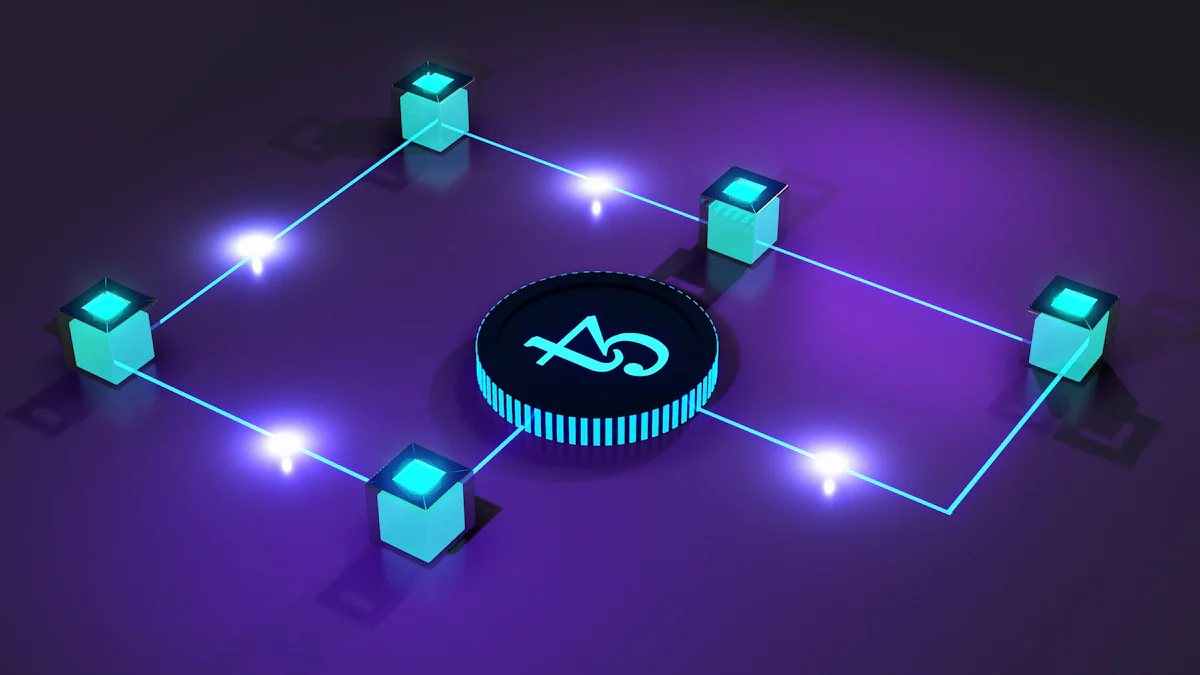Decentralized Peer-to-Peer Networks: Exploring Distributed Sharing

Decentralized Networks
Decentralized networks have fundamentally transformed the way information is exchanged in the digital realm. They empower users to connect and share resources without the need for a central authority, thereby fostering digital independence and ushering in a new era of connectivity. These peer-to-peer networks operate on the principles of decentralization, enabling direct interactions between users and minimizing reliance on centralized infrastructure. The utilization of blockchain technology further enhances the security and transparency of these decentralized networks, paving the way for a more robust and resilient digital ecosystem.
Peer-to-Peer Overview
Evolution of Peer-to-Peer Networks
- Pioneering a paradigm shift from centralized to decentralized networks has been the hallmark of peer-to-peer (P2P) networks. These innovative systems have played a pivotal role in reshaping the digital landscape by facilitating direct connections and resource sharing. Unlike traditional centralized networks, P2P networks prioritize a distributed sharing model, allowing users to interact directly with one another without relying on intermediaries.
Benefits of Peer-to-Peer Networks
- The transition to P2P networks brings with it a host of benefits, including enhanced security and privacy. By decentralizing data and resources, these networks reduce the risk of single points of failure, making them more resilient against potential disruptions or cyber threats. This fosters a more robust and secure environment for information exchange and collaboration.
Distributed Sharing and Blockchain
Understanding Distributed Sharing
In the realm of decentralized systems, distributed sharing refers to the direct exchange of resources between users without the need for a central authority. This model enables individuals to interact and transact with one another seamlessly, fostering a sense of digital independence and autonomy. One of the key enablers of distributed sharing is blockchain technology, which ensures that transactions are secure, transparent, and tamper-proof. By leveraging blockchain, users can engage in peer-to-peer exchanges with confidence, knowing that their transactions are protected by advanced cryptographic techniques.
Impact of Blockchain on Distributed Sharing
The integration of blockchain technology has significantly enhanced the security and immutability of distributed sharing networks. Through its decentralized and consensus-driven approach, blockchain minimizes the risk of fraudulent activities and unauthorized modifications to shared resources. Moreover, blockchain facilitates peer-to-peer transactions by providing a trusted framework for validating and recording exchanges. This not only strengthens the integrity of distributed sharing but also instills greater trust and reliability in peer-to-peer interactions.
Cryptocurrency Impact
Role of Cryptocurrency in Decentralized Networks
Cryptocurrency plays a pivotal role in facilitating peer-to-peer transactions within decentralized networks. By leveraging blockchain technology, cryptocurrencies enable direct and secure digital payments between users without the need for intermediaries. This not only streamlines the transaction process but also enhances the security and transparency of financial interactions in the digital realm. The integration of cryptocurrency into decentralized networks empowers individuals to engage in seamless and trustless transactions, thereby fostering a more independent and efficient digital economy.
Challenges and Opportunities in Cryptocurrency
The impact of cryptocurrency on decentralized networks brings forth both challenges and opportunities. One significant challenge is the inherent volatility of cryptocurrencies, which can pose risks for users engaging in transactions. Additionally, regulatory concerns surrounding the use of cryptocurrencies create uncertainties within the financial landscape. However, amidst these challenges lie opportunities for financial inclusion and innovation. Cryptocurrencies have the potential to expand access to financial services for underserved populations, fostering greater economic participation. Furthermore, they pave the way for innovative financial models and technologies that could revolutionize traditional systems.
Digital Independence
Empowering Digital Independence
Enabling digital independence through decentralized peer-to-peer networks marks a significant reduction in reliance on centralized entities. By embracing distributed sharing models, individuals and communities gain greater autonomy over their digital interactions and transactions. This empowerment fosters an environment conducive to innovation and creativity, as it encourages the exploration of new avenues for collaboration and resource sharing.
Challenges and Future of Digital Independence
Despite the promise of digital independence, there are notable challenges on the horizon. Regulatory hurdles and adoption barriers present obstacles to widespread acceptance and utilization of decentralized networks. Overcoming these challenges will be crucial for realizing the full potential of digital independence. However, amidst these obstacles lies the potential for transformative societal impact. As decentralized networks continue to evolve, they have the capacity to reshape traditional systems, fostering greater inclusivity and democratizing access to resources and opportunities.
Embracing Decentralization
Decentralization has redefined the landscape of digital connectivity, ushering in a new era of empowerment and innovation. By embracing decentralized networks, users are afforded greater autonomy and control over their digital interactions, fostering an environment that encourages creativity and collaboration. However, with these advancements come a unique set of challenges and opportunities that shape the future of decentralization. Navigating through regulatory hurdles while capitalizing on the potential for transformative societal impact will be pivotal in harnessing the full benefits of decentralized systems.
